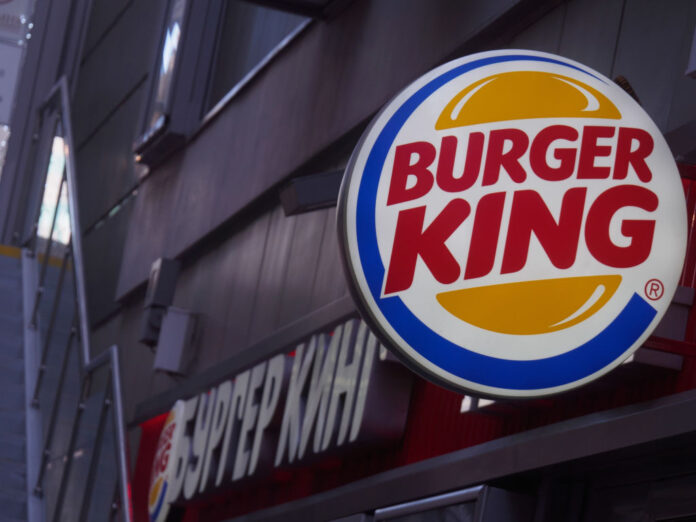The parent company of Burger King says it doesn’t have free rein to halt its operations in Russia, citing an uncooperative business partner and the complex structure of the original deal it struck to enter the country years ago.
Restaurant Brands International, which also owns Tim Hortons and Popeyes, said in a letter through president David Shear on Thursday that while it’s working to pull out of Russia — a move taken by multinationals including Starbucks, Coca-Cola and more amid the war in Ukraine — it’s been stymied in those attempts by one of its main business partners in the country.
When Burger King first entered Russia in 2010, it did so through a deal with Russian restaurateur Alexander Kolobov and other partners in the region.
Kolobov is responsible for operating the more than 800 Burger King locations in Russia, but has not been receptive to RBI’s attempts to pull out of the region, according to Shear.
Video shows long lines at Moscow Apple store after company announces pause of operations in Russia – Mar 11, 2022
“We contacted the main operator of the business and demanded the suspension of Burger King restaurant operations in Russia. He has refused to do so,” Shear wrote.
The company says it has cut off all support to its Russian franchises and says it’s donating any proceeds from those operations to the United Nations’ refugee agency.
RBI has also moved to get rid of its 15-per cent ownership stake in the joint venture.
Shear says any further attempts to cut off Burger King Russia’s use of the brand would require the support of authorities on the ground in the country, which he conceded in his letter “will not practically happen anytime soon.”
Trending Stories
Grand piano-sized asteroid spotted just 2 hours before hitting Earth
‘Absolutely phenomenal’: Webb Telescope’s first images have scientists giddy
“Would we like to suspend all Burger King operations immediately in Russia? Yes. Are we able to enforce a suspension of operations today? No,” Shear wrote.
Ian Lee, professor at Carleton University’s Sprott School of Business, says RBI’s hands are tied and it has few legal avenues realistically open to shut down the use of its own brand in Russia.
“The Russian courts are notorious. It’s not a rule-of-law country,” says Lee, who studies and teaches international business strategy. “It shows the risk of dealing in countries that are not rule-of-law.”
In addition to crippling sanctions targeting Russian oligarchs, businesses, its currency and wider financial system, Lee says the war in Ukraine’s most crushing economic impact on Russia could be in its brand.
Multinational businesses that are now pulling out of the country in droves won’t simply return when and if a peaceful accord is reached to end the war, he says. Even if sanctions are dropped, the “court of public opinion” will rule against any business seeking to return to the country in the months to follow.
He adds that the tumbling ruble has worsened the value proposition for being in the country in the first place.
Sanctions further isolate Russia, crush its economy – Mar 10, 2022
“I think it’s very unlikely that a major corporation, not just Burger King, any major corporation that was in Russia is going to return anytime soon. And that’s because the Russian brand has become so toxic … that no company will want to have its brand associated or soiled by being associated with Russia,” Lee says.
The legal difficulty and images concerns around leaving Russia — Shear said at the start of the letter he wanted to clear up “a lot of media reports” about Burger King’s ongoing operations — are likely causing other multinationals to see what other markets they could be vulnerable in, Lee says.
“I’m sure their VPs in charge of international (business) are re-evaluating the risk profile of each country in which they’re in, because every country has a different risk profile, just like every company or consumer, has a different credit rating,” he says.
© 2022 Global News, a division of Corus Entertainment Inc.



